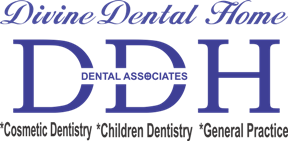Oral Diagnosis
The first thing people notice about you is the smile, and also if you have something going on in your mouth. When you talk to people, your oral health becomes obvious.
At least for simple symptoms such as yellowing of teeth and bad breath. Sometimes, it is we that realize it.
What is Oral Diagnosis?
Oral Diagnosis” literally means “analysis of the inner mouth”. Successful oral treatment is only possible if an accurate diagnosis has been made. Oral diagnosis in dentistry is the practice of determining all problems inside and outside of the mouth.
By using scientific knowledge to determine the relationship between them and thereby helping to make the right decisions regarding treatment based on the findings at hand.
Dentistry is an art. Earlier oral diagnosis depends upon the history and clinical features. The dentist should concentrate on several causative factors and possible diagnostic factors.
Where the dentist may require the collection of more information and in-depth clinical examination.

At certain times, when there is no correlation between clinical or oral diagnosis and etiological factors or the laboratory results or radiological investigations. The pathology (biopsy report) issues the final diagnosis.
An effective oral diagnosis can be done through oral inspection, external inspection, and radiologic inspection.
An extra-oral examination includes inspection of the tissues in and around the mouth (face, jaws, temporomandibular joint, lips, nose, neck, chin…).
Additionally, intra-oral examination systematically inspects the teeth. Receding gums, plaque, tartar buildup, abscess presence, mobility, cavities, inharmonious restorations, complications, color, count, and shape defects.
A systematic approach must be adopted to ensure that all areas are examined. Few patients have died as a result of dental caries but many have died as a result of a late diagnosis of oral cancer.
Dentists have to detect both potentially malignant and malignant oral lesions. There are different types of Dental diagnoses, let’s mention about three of them; Tooth decay, grinding and clenching, and tooth wear.
Tooth Decay
Tooth decay can affect all layers of a tooth. It can take three years for a cavity to form in the strong outer layer of tooth enamel. Decay progresses more quickly through the dentin (middle layer) to the pulp (innermost layer).
The pulp contains a tooth’s nerve endings and blood supply. Types of tooth decay in oral diagnosis include:
- Smooth surface: This slow-growing cavity dissolves tooth enamel. You can prevent it — and sometimes reverse it — with proper brushing, flossing, and dental cleanings. People in their 20s often develop this form of tooth decay between their teeth.
- Pit and fissure decay: Cavities form on the top part of the tooth’s chewing surface. Decay also can affect the front side of back teeth. Pit and fissure decay tends to start during the teenage years and progresses quickly.
- Root decay: Older adults who have receding gums are more prone to root decay. Gum recession exposes the tooth’s root to plaque and acid. Root decay is difficult to prevent and treat.
Teeth Grinding and Clenching (Bruxism)
Bruxism (BRUK-siz-um) is an oral health condition in which you grind, gnash or clench your teeth. If you have bruxism, you may unconsciously clench your teeth when you’re awake (awake bruxism) or clench or grind them during sleep (sleep bruxism).
Teeth grinding can be caused by stress and anxiety. It often occurs during sleep.
Signs and symptoms of bruxism when diagnosed may include:
- Teeth grinding or clenching, which may be loud enough to wake up your sleep partner,
- Teeth that are flattened, fractured, chipped, or loose.
- Worn tooth enamel, exposing deeper layers of your tooth.
- Increased tooth pain or sensitivity.
- Tired or tight jaw muscles, or a locked jaw that won’t open or close completely.
- Jaw, neck, or face pain or soreness,
- Pain that feels like an earache. Though it’s actually not a problem with your ear.
- Dull headache starting in the temples.
- Damage from chewing on the inside of your cheek.
- Sleep disruption.
Why is Oral Diagnosis important?
We hope to never have pain or dental issues. With good preventative care, that’s usually the case. But sometimes, even with the best habits in place for dental hygiene, stuff happens.
An oral diagnosis allows your dentist to see if you have any dental problems and helps you keep your mouth healthy.
Leaving problems untreated could make them more difficult to treat in the future, so it’s best to deal with problems early, or, if possible, prevent them altogether.
How often am I to visit my dentist to get my oral diagnosis done?
Your dentist should suggest when you should have your next check-up based on how good your oral health is.
Now, let’s get familiar with how to get the most out of your oral diagnosis in Lagos. Good hospitals in a very good area are one of the criteria to consider before going ahead to go for medical checkups and stuff.
Then we go ahead to consider hospitals that have the best equipment and laboratories to give you desiring and satisfying services.
We have lots and lots of dental hospitals in Lagos. But trust me when you want a good hospital, that’s in a very conducive area. With highly equipped laboratories and very competent dentists.
Say no more, Divine Dental Home is the best of the best where you get all your oral issues sorted out to your satisfaction and even more than your expectations. we love our patients and love to help them form healthy dental life that will last them a lifetime. For more information check our services or visit DDH-Divine Dental Home at 8B Fabac Close, Off Ligali Ayorinde St, Victoria Island, Lagos, Nigeria






